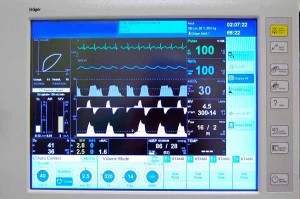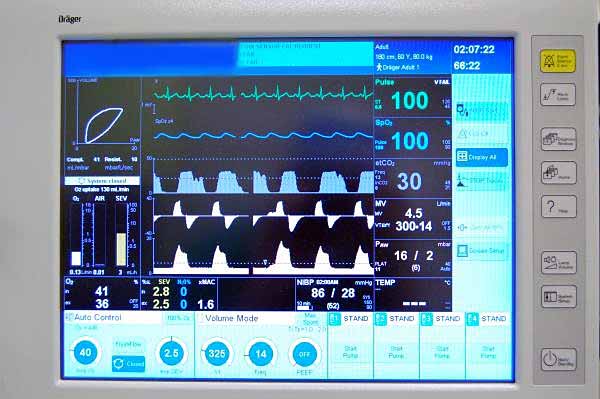 Do you ever get tired of listening to monitor alarms? Many anesthesia providers who are confident in their vigilance and their ability to “know when something is wrong” mute the alarms when they feel that they are needlessly alarming. Unfortunately, patients are injured or killed every years in anesthesia related mishaps which could have been prevented had the alarms been fully functional.
Do you ever get tired of listening to monitor alarms? Many anesthesia providers who are confident in their vigilance and their ability to “know when something is wrong” mute the alarms when they feel that they are needlessly alarming. Unfortunately, patients are injured or killed every years in anesthesia related mishaps which could have been prevented had the alarms been fully functional.
According to Ana McKee, MD from the Joint Commission “Alarm fatigue and management of alarms are important safety issues that we must confront”. Between January 2009 and June 2012, the commission received 98 voluntary reports of alarm-related events, 80 of which resulted in patient deaths and 13 in serious injuries. (The Dangers of Alarm Fatigue)
An article published in Outpatient Surgery describes one such case in which a 17 year old female was given Fentanyl in the recovery room in a bay where the monitor had been silenced. The narcotic caused a respiratory arrest which went unnoticed due to the curtain pulled around the bed. The patient suffered severe brain damage and died a few weeks later. The settlement in the case was 6 million dollars and the CRNA was named in the suit along with the PACU staff because the anesthetist had left the patient with a monitor that had been muted. Click here to read about the case.
The Joint Commission has named alarm fatigue as one of the top healthcare technology hazards and makes the following recommendations:
- standard operating procedures for alarm management and response
- an inventory of devices that sound alarms
- guidelines for alarm settings and situations when alarm signals are not clinically necessary
- regular training on alarm management and inspection of alarm-equipped devices
- discussions to determine how to reduce nuisance alarms
Click here to read more from The Joint Commission regarding alarm fatigue
Monitor alarms are an important tool in the quest for patient safety and should not be disabled or muted.
